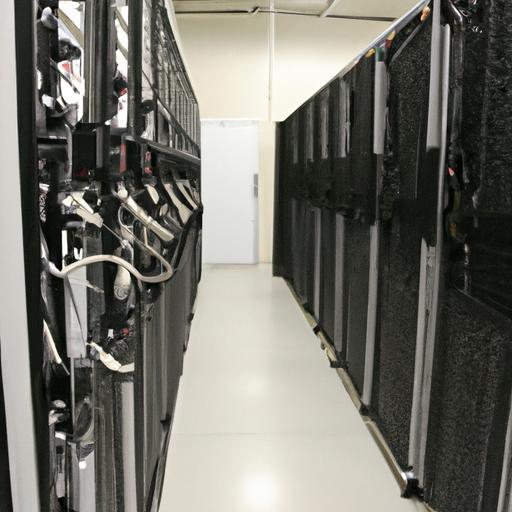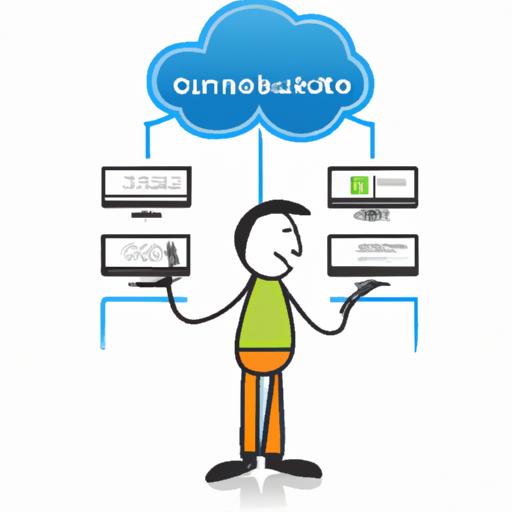As companies increasingly rely on technology to improve business operations, the choice between private cloud vs data center becomes more vital. These two options have been a popular choice among businesses that want to store their data securely and access it easily. But what exactly is a private cloud and a data center?
A private cloud refers to a cloud environment dedicated to a single organization. It provides a highly secure and scalable infrastructure that is not shared with other companies. On the other hand, a data center is a physical facility that houses an organization’s IT infrastructure, including servers, storage devices, and networking equipment.
Choosing the right option between private cloud vs data center is crucial. It can significantly impact your business’s productivity, security, and profitability. In this article, I will discuss the benefits and costs of each option to help you make an informed decision that best fits your business needs.
Main Keyword: Private Cloud vs Data Center
Private Cloud

Data centers can provide businesses with the scalability and flexibility needed to grow and adapt to changing demands.
Definition and Characteristics
A private cloud is a type of cloud computing environment that is dedicated to a single company. It offers all the benefits of the public cloud, such as scalability and flexibility, while providing higher levels of security and control. Unlike public clouds, private clouds are not shared with other companies, which means that they offer greater privacy and customization options.
Private clouds are built on a company’s infrastructure, which can be located on-premises or hosted by a third-party provider. They can be managed by the company’s IT department or by a dedicated team of cloud experts.
Benefits of Using a Private Cloud
One of the main benefits of using a private cloud is the level of security it provides. Since a private cloud is dedicated to a single organization, it is easier to control who has access to the data and applications hosted on it. This reduces the risk of data breaches and cyber attacks, which can be costly and damaging to a company’s reputation.
Private clouds also offer greater customization options than public clouds. Companies can tailor the infrastructure to meet their specific needs, which can improve performance and reduce costs. They can also choose which applications and data to host on the cloud, which can help optimize resource utilization.
Costs Associated with a Private Cloud
The main disadvantage of using a private cloud is the cost. Private clouds require significant upfront investment in hardware, software, and IT expertise. Companies must also allocate resources for ongoing maintenance and upgrades, which can be expensive.
However, the cost of a private cloud can be offset by the benefits it provides. For example, by reducing the risk of data breaches and cyber attacks, a private cloud can help companies save on security costs and avoid costly legal and regulatory penalties. Additionally, the increased customization options can lead to better resource utilization, which can result in cost savings over time.
Comparison of Private Cloud and Data Center

Network administrators play a crucial role in maintaining the security and performance of private cloud environments.
When deciding between a private cloud and data center, it’s important to consider the crucial factors that differentiate them. Let’s compare them based on security and compliance, scalability and flexibility, maintenance and management, and cost-effectiveness.
Security and Compliance
Both private cloud and data center offer high-level security and compliance. However, private cloud provides more control over data security since it’s dedicated to a single organization, making it easier to maintain compliance regulations. Data centers, on the other hand, are subject to shared security controls and can be more vulnerable to security breaches.
Scalability and Flexibility
Private cloud is highly scalable and flexible, allowing organizations to expand or reduce their infrastructure based on their business needs. It provides a more agile infrastructure that can be customized to meet the specific needs of an organization. Data centers, on the other hand, require more time and resources to scale up or down and may not be as flexible as private cloud.
Maintenance and Management
Private cloud requires more expertise and resources to maintain and manage, as the organization is responsible for its infrastructure. On the other hand, data centers are managed by third-party providers, relieving the organization of the burden of maintaining and managing its infrastructure. However, this also means less control over infrastructure and less customization.
Cost-effectiveness
The cost of a private cloud is higher than that of a data center, as it requires dedicated resources and more expertise to maintain and manage. Data centers, on the other hand, are more cost-effective since they are shared by multiple organizations and managed by a third-party provider. However, it’s important to note that the cost-effectiveness of each option depends on the specific needs of the organization.
In summary, both private cloud and data center have their benefits and drawbacks, and the choice between them depends on the specific business needs and goals.
Factors to Consider When Choosing Between Private Cloud and Data Center

The complexity of managing and maintaining a data center requires a team of skilled IT professionals.
When deciding between private cloud vs data center, businesses should consider several factors to determine which option is best suited to meet their unique needs.
Business goals and requirements
Understanding your business goals and requirements is crucial when choosing between private cloud and data center. Consider the type of data you need to store, the level of accessibility required, and the scalability needed. If your business has strict data confidentiality requirements, a private cloud may be the better option. However, if you require more significant storage space and faster access to your data, a data center may be the better option.
Budget and resources
Cost is a critical factor when choosing between private cloud vs data center. A private cloud may require a more substantial upfront investment, including hardware, software, and maintenance costs. On the other hand, a data center may require a more significant investment in real estate, power, cooling, and maintenance costs. Businesses should assess their budget and resources to determine which option is more cost-effective.
IT expertise and staff
The level of IT expertise and staff available is another critical factor to consider. A private cloud requires a high level of technical expertise and staff to manage its infrastructure, while a data center requires a different set of skills. Businesses should evaluate their IT staff’s skill set and consider whether they have the necessary expertise to manage a private cloud or data center.
Future growth and expansion
Businesses should also consider their future growth and expansion plans when choosing between private cloud vs data center. A private cloud is more scalable and flexible than a data center, making it a better option for businesses with growth plans. On the other hand, a data center may be the better option for businesses with more predictable data storage needs and limited growth plans.
By considering these factors, businesses can make an informed decision when choosing between private cloud vs data center.
Conclusion
In conclusion, both private cloud and data center offer different benefits and costs. Choosing between them requires a careful consideration of your business’s needs, budget, and future growth plans.
A private cloud offers security, scalability, and flexibility while requiring a higher initial investment. In contrast, a data center provides cost-effectiveness, reliability, and control, but it requires a dedicated IT team and maintenance costs.
Before making a final decision, it is essential to evaluate your business’s goals and requirements, budget, IT expertise, and future growth potential. By doing so, you can choose the option that best fits your business needs and goals.
In summary, private cloud vs data center is a critical decision for businesses that want to store and manage their data efficiently and securely. By weighing the advantages and disadvantages of each option, you can make a well-informed decision that sets your business up for long-term success.